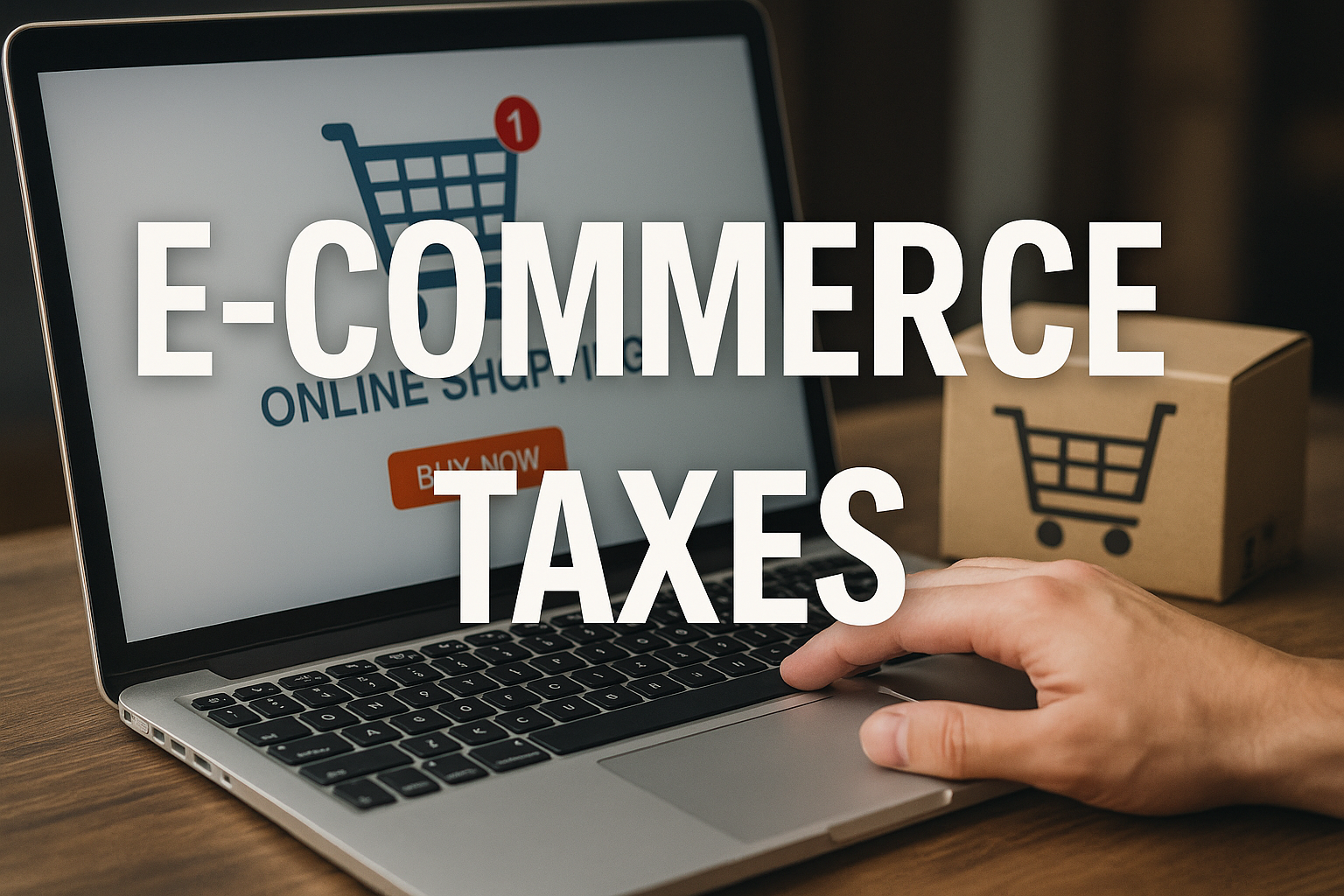Pakistan’s Finance Bill 2025–26: Final Approval on eCommerce Taxation in Pakistan

Pakistan’s Finance Bill 2025–26: What It Means for eCommerce Businesses
The Finance Bill 2025–26 brings sweeping reforms for Pakistan’s digital and retail sectors, with a sharp focus on the growing eCommerce industry. From mandatory registration to fixed taxation via intermediaries, the bill introduces a structured compliance framework that eCommerce platforms, sellers, and service providers must now adhere to.
🧾 Formal Definitions Introduced
For the first time, key players and operations in the eCommerce ecosystem are formally defined in Pakistan’s Sales Tax Act, 1990, including:
- E-Commerce: Sale or purchase of goods/services over digital networks (websites, apps, online marketplaces).
- Online Marketplace: Platforms facilitating digital orders from multiple sellers to multiple buyers.
- Payment Intermediary: Entities like banks, fintech apps, or payment gateways processing financial transactions.
- Courier: Any entity delivering goods and collecting cash on behalf of sellers (includes logistics companies, ride-hailing, and food delivery platforms).
💰 Tax Deduction at Source – A Game Changer
One of the most significant changes is that tax collection responsibility is now shifted to:
- Payment Intermediaries for digital payments.
- Couriers for cash-on-delivery (COD) transactions.
These entities must deduct 2% sales tax on the gross value of each digitally ordered item originating within Pakistan. The tax withheld is final — meaning sellers cannot claim input tax adjustments against these supplies.
“Tax collected by payment intermediary and courier shall be deemed as final discharge of tax liability under this Act.” – Section 3(7A)
🛍 Registration Becomes Mandatory
Every person or business selling digitally ordered goods from within Pakistan must register for both sales tax and income tax. This includes sellers using:
- Online marketplaces (e.g., Daraz, Facebook Shops)
- Personal websites or mobile apps
- Social selling platforms
Online marketplaces and couriers are prohibited from allowing unregistered sellers to use their platforms.
📋 Monthly Compliance Reporting
Marketplaces, payment gateways, and couriers must now:
- Submit monthly statements detailing all taxable supplies of digitally ordered goods.
- Include supplier-wise information, amount paid, and tax collected.
Failure to comply will result in penalties:
- PKR 500,000 for the first offence
- PKR 1 million for each subsequent default
🔐 Enforcement Powers Expanded
To ensure compliance, the Bill introduces strict coercive powers:
- Freeze bank accounts of non-registered sellers
- Restrict transfer of immovable property
- Seal business premises or appoint receivers
- Issue public notices and conduct enforcement with support from trade bodies
These powers will be exercised after reasonable warnings, hearings, and notification periods.
Penalties for Non-Compliance
|
Offence |
Penalty |
|
Use of platform by unregistered seller |
PKR 500,000 to 1,000,000 |
|
Failure to file monthly statements |
PKR 500,000 to 1,000,000 |
|
Tampering with e-bilty (electronic transport doc) |
PKR 50,000 to 1,000,000 and potential confiscation |
Flat Sales Tax Rate Introduced
A new Eleventh Schedule in the Sales Tax Act confirms:
- 2% flat tax on digitally ordered goods
- Applied to gross value of supply
- Deducted by intermediary/courier
- Treated as final tax liability for the seller
This approach simplifies calculation but disallows any input tax adjustment, impacting sellers with complex cost structures.
🧠 Strategic Considerations for Businesses
Businesses engaged in eCommerce should now:
- Ensure tax registration for all sellers, even individual micro-entrepreneurs
- Integrate systems with couriers/payment intermediaries for tax tracking
- Review pricing models to accommodate the 2% non-adjustable tax
- Educate resellers on the need for compliance to avoid platform-level penalties
Pakistan’s Finance Bill 2025–26 represents a major step toward documenting and formalizing the country’s fast-growing eCommerce industry. While the move will likely boost tax revenue and transparency, it also places significant responsibility on digital platforms and intermediaries.
The challenge now lies in balancing enforcement with ease of doing business — especially for women-led home-based sellers and small entrepreneurs. If implemented with adequate clarity and support mechanisms, this reform could pave the way for a more stable and fair digital economy.
You can Download the Copy of Final Approved Bill of Finance Bill 2025-26 Pakistan by Clicking Here.
ecommerce tax Pakistan, Finance Bill 2025, online marketplace tax, Pakistan ecommerce regulation, sales tax ecommerce, COD tax Pakistan, payment intermediary tax, courier tax ecommerce, ecommerce registration FBR, ecommerce compliance Pakistan, online seller tax, FBR ecommerce policy, ecommerce tax rate Pakistan, 2 percent ecommerce tax, digital sales tax Pakistan, ecommerce business Pakistan, ecommerce law 2025, Pakistan ecommerce update, ecommerce seller registration, ecommerce penalty Pakistan






